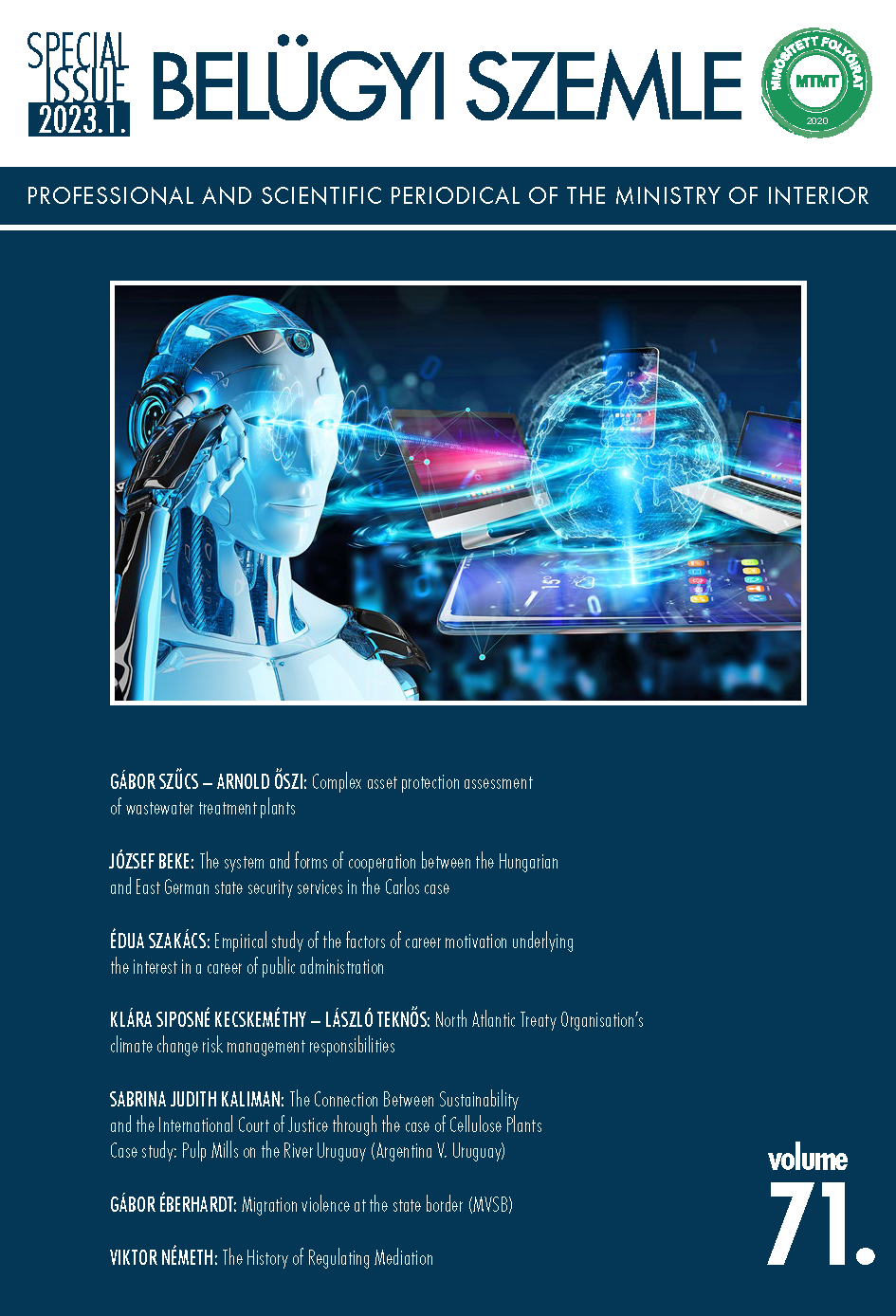Abstract
Aim: This article aims to study NATO’s attitude towards climate change and its policies against the negative impact climate change poses. The article also aims to show how NATO’s strategic objectives are affected by current ecological challenges.
Methodology: Analysing the topicality with the help of index databases, primarily using data from ScienceDirect and Google Scholar. The authors analyse and evaluate the security challenges related to NATO’s function, primarily based on security aspects of climate change, public extracts of NATO summits, materials of related action plans and world conferences, technical reports of decision-making and other bodies, as well as other publication.
Findings: The security environment is undergoing a vigorous change. Despite of the fact that the global policies, migration and acts of terrorism are on the rise, economic and social consequences based on environmental damage are even more complex, armed conflicts and crises evolve – all that require NATO to respond. However, besides classic strategic objectives, NATO has to take the damaging effects of climate change, participating in the execution of sustainable development objectives, energy security, etc. into account. Thus, encouraging the military dialectics to study theoretical and practical issues of natural and social sciences, enforcing awareness-raising. It further enforces the tendency to study the adaptability and integrability of mainstream environment trends.
Value: The analysing-evaluating work of the authors covers a wider spectrum of NATO’s task system, thus including unusual or not-so-well-known and not-so-popular, yet necessary topics besides the classic ones.

